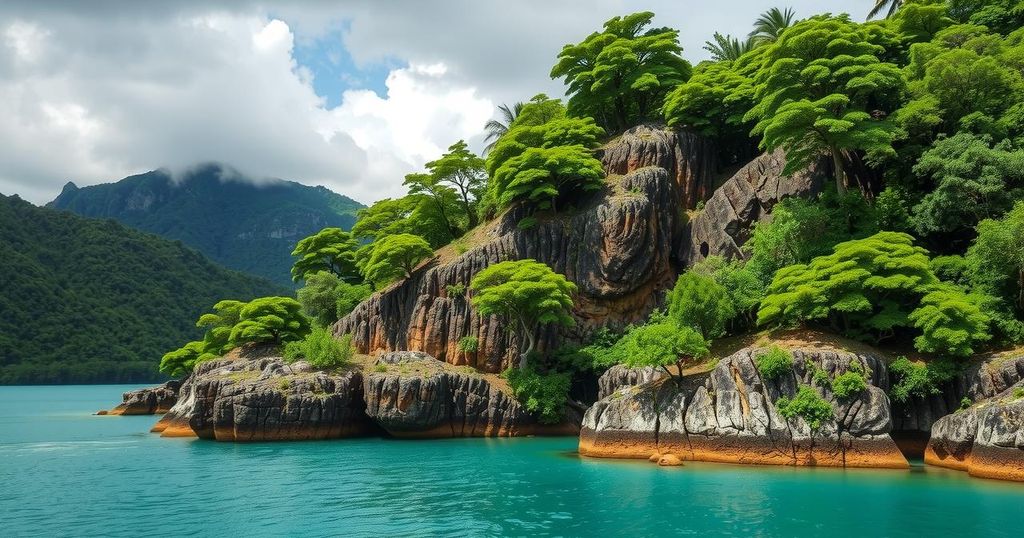Climate change
Technology
AFP, AMAZON, ASIA, AUSTRALIA, AZERBAIJAN, BRAZIL, CLIMATE CHANGE, CUBA, DEFORESTATION, ENVIRONMENT, EUROPE/ASIA, ISLAND, JAMES MARAPE, MARAPE, NDTV, NEW GUINEA, NORTH AMERICA, OCEANIA, PACIFIC, PACIFIC NATIONS, PAPUA NEW GUINEA, PARIS AGREEMENT, SOUTH AMERICA, SUSTAINABLE DEVELOPMENT, SYDNEY, TURKEY, UN, WWF
Marcus Li
0 Comments
Papua New Guinea Reaffirms Commitment to UN Climate Talks with Forest Focus
Papua New Guinea’s Prime Minister, James Marape, announced plans to return to UN climate talks, focusing on forest conservation. After boycotting the recent summit due to a perceived disregard for forest interests, he intends to advocate for financial contributions from high carbon emitters for forest preservation. PNG will support Australia’s bid to co-host COP31, linking climate discussions to the protection of their vital rainforests.
Papua New Guinea’s Prime Minister, James Marape, has announced the country’s intention to return to the United Nations climate negotiations following a boycott of this year’s talks. During an interview, he emphasized the need for heightened focus on forest conservation, asserting that discussions surrounding climate change are ineffective without addressing this critical issue. Marape specifically mentioned that the country aims to actively participate in COP30 in Brazil next year, where he plans to advocate for financial contributions from nations with significant carbon emissions towards forest preservation initiatives. He noted, “It is the forestry that clears the atmosphere of carbon and carbon footprints.” Additionally, Marape expressed full support for an Australian initiative to co-host COP31 in 2026 provided that forest conservation remains a priority in the discussions. Papua New Guinea, home to the world’s third-largest expanse of rainforest, has been recognized as vital to global ecological health, often referred to as one of the “lungs of the Earth.” The country previously abstained from the UN climate summit in Azerbaijan, criticizing the lack of respect for forest stakeholders. As one of the Pacific nations facing the severe repercussions of climate change, PNG remains a participant in a significant International Court of Justice case concerning accountability for climate inaction.
Papua New Guinea is a Pacific nation characterized by its vast natural resources, particularly its extensive rainforests. These forests play a crucial role in carbon sequestration and thus in global climate regulation. The country has faced growing vulnerabilities to climate change, including natural disasters, which heighten the urgency for effective climate action. PNG’s previous absence from the UN climate talks pointed to discontent with the international community’s approach to climate issues, specifically regarding the involvement of forest resource stakeholders. Prime Minister Marape’s statements reflect a commitment to reposition PNG in global climate dialogues with a focus on sustainability and conservation.
In conclusion, Papua New Guinea’s renewed commitment to engage in UN climate summits, particularly emphasizing forest conservation, underscores the importance of these ecosystems in combatting climate change. Prime Minister Marape’s advocacy for accountability from high carbon-emitting nations highlights a broader demand for equitable contributions towards environmental preservation. As PNG seeks to influence future climate agreements, its rich rainforest resources position the nation as a key player in discussions surrounding global environmental sustainability.
Original Source: www.ndtv.com




Post Comment